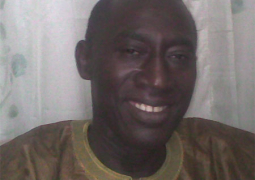This, according to Prof. Jakob Rhyner, the vice Rector of the United Nations University in Europe and Director of Environment and Human Security (UNU-EHS), would improve knowledge on risk management and cooperation from communities when disaster occurs.
Prof. Rhyner made the suggestion during a presentation on the topic: “Future Challenges to Risk Management”, at a seminar organized by the United Nations University Institute for Natural Resources in Africa (UNUINRA), in Accra, Ghana.
Citing disaster case studies from different countries in Europe and Africa, Prof. Rhyner noted that coping strategies for natural disasters including tsunami, flood, drought, and sea-level rise, are often not enough to mitigate their impacts on livelihoods.
“Disaster risk coping strategies often include alternative sources of income, evacuation, migration and reliance on aid and social networks, but researchfromvarious case studies have proventhat these coping strategies are not adequate to avoid loss and damage, hence the need to complement current efforts with new strategies,” said Prof. Rhyner.
With specific reference to the Hyogo Framework for Action (HFA), which is a global blueprint for disaster risk reduction, Prof. Rhyner reiterated the need for preparedness, which should include knowledge creation and dissemination to break values and beliefs that usually inhibit disaster risk reduction communications efforts.
He also emphasized the importance of good risk management policies and legislative instruments, backed by strong institutions with the requisite technical and social capacities for implementation.
The seminar, which was very interactive, gave the participants the opportunity to share ideas on hazards, vulnerabilities, capacities and different disaster risk reduction measures across various sectors of society.
The UNU-INRA seminar brought together 40 stakeholders from academia, private and the public sector, such as representatives from Ministry of Environment, Science, Technology and Innovation, NADMO, Climate Change Resource Centre, Climate Action Network, Regional Institute for Population Studies (RIPS), the University of Ghana and UNESCO, all in Ghana.
About UNU-INRA: UNU-INRA’s work centers on Africa’s two most important endowments - its human and natural resources.
It aims at strengthening capacities at universities and other national institutions to conduct research and produce well-trained individuals with the ability to develop, adapt and disseminate technologies that promote the sustainable use of the continent’s natural resources.





